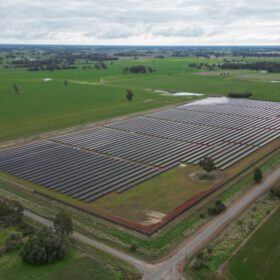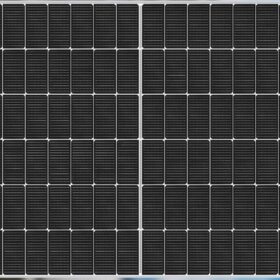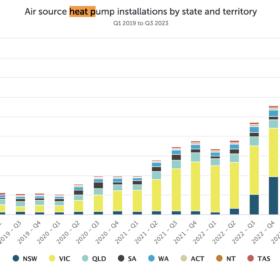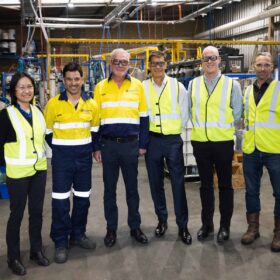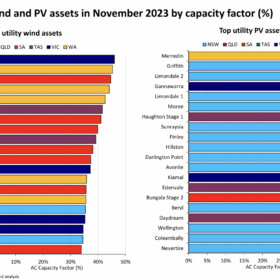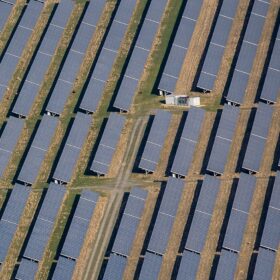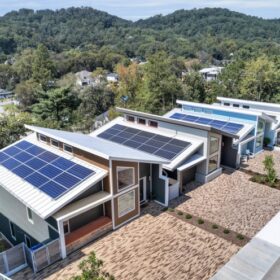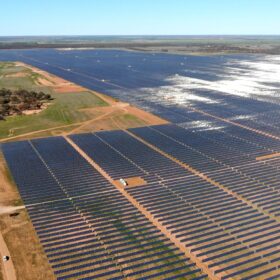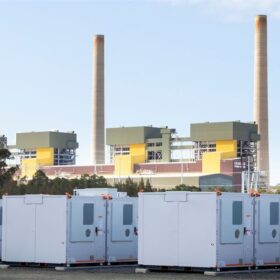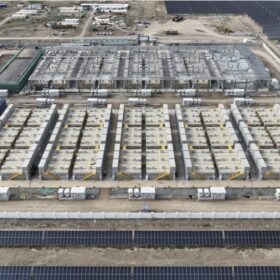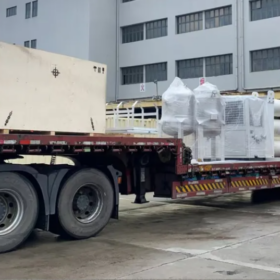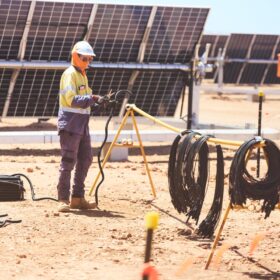Bison commences commissioning phase with Cosgrove Solar Farm
Another small-scale solar farm has connected to the grid in Victoria with developer Bison Energy announcing that the 4.95 MW Cosgrove Solar Farm near Shepperton has powered up, marking the commencement of its commissioning phase.
Empirical approach shows PV is getting cheaper than all the forecasters expect
With the consistently unambitious forecasts for solar trotted out by entities such as the International Energy Agency (IEA) now a matter of record, a German risk management company has tried to predict more realistic figures for 2030 and beyond.
Sharp unveils 575 W TOPCon solar panel with 22.26% efficiency
Sharp’s new IEC61215- and IEC61730-certified solar panels have an operating temperature coefficient of -0.30% per C and a bifaciality factor of over 80%.
400% increase in heat pump installations in NSW, rooftop solar continues to set records
Australians have installed a record number of both heat pumps and rooftop solar system this quarter, according to Clean Energy Regulator. If Q4, typically solar’s biggest quarter, proves substantial, the nation could match its annual rooftop record of 3.2 GW set in 2021.
AGL pairs with battery recycling startup to examine viability of recycling at its Hunter Energy Hub
AGL and Australian battery recycling startup, Renewable Metals, have signed a deal to investigate the viability of building a lithium battery recycling facility at AGL’s envisioned Hunter Energy Hub, formally one of Australia’s most significant coal centres.
NSW home to 13 of the top 20 performing solar farms in November
New South Wales was home to 13 of the top 20 performing solar farms in November, with the state generating 682 GWh from utility-scale PV. Overall, Australia’s large-scale renewable generation was up 7% from the previous November, Rystad’s Senior Renewables Analyst Dave Dixon said.
Air New Zealand to deliver mail in electric plane
Air New Zealand has ordered an electric five-seat plane to initially use for cargo-only services, with the intention of offering passenger services in future. The company has options to buy two more of the electric planes, with rights reserved on a further 20.
Redback Technologies compliant for flexible exports to Queensland grid
Redback Technologies has announced inverters certified as compliant with Queensland’s dynamic connections for energy exports. This enables homeowners to export energy back into the grid at a flexible rate so that energy output is only limited in roughly 2% of the time when excess power from PV installations would overwhelm the grid.
Rooftop solar is crushing* the returns for large-scale VRE
* rooftop PV is a dominant factor, though there are others… such as the ongoing need for ‘Keeping the Lights on Services’ (which large-scale VRE largely does not supply).
What drives solar adoption not equal across income levels
Lawrence Berkeley researchers studied how solar buying decisions are influenced across varying income levels and offer rationale for policy changes and incentives to spur adoption among low- to middle-income households.
